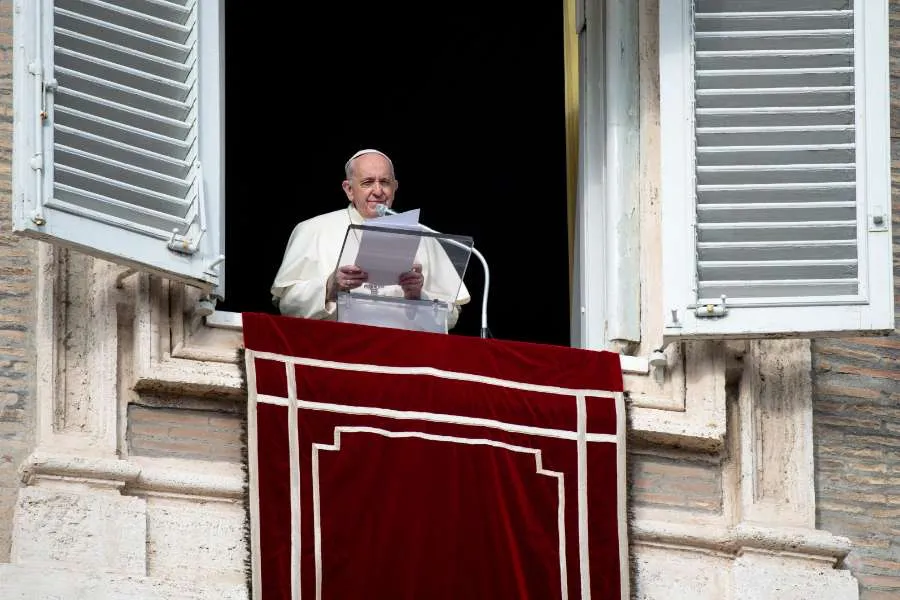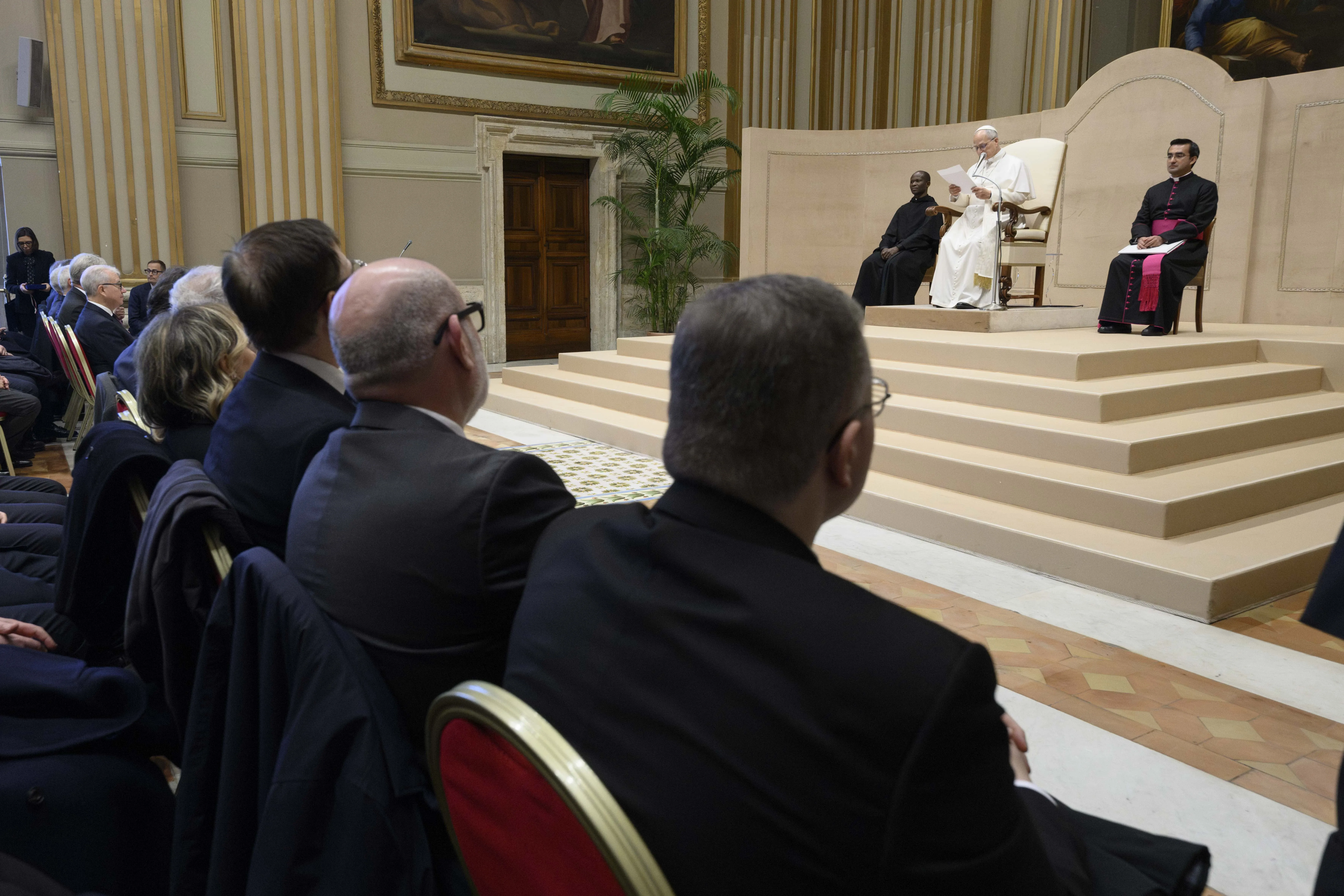In his address, the pope meditated on Sunday’s Gospel reading, Mark 1:1-8, which describes John the Baptist’s mission in the wilderness.
“He reveals to his contemporaries an itinerary of faith similar to the one that Advent proposes to us: that we prepare ourselves to receive the Lord at Christmas. This itinerary of faith is an itinerary of conversion,” he said.
He explained that in biblical terms conversion means a change of direction.
“In the moral and spiritual life, to convert means to turn oneself from evil to good, from sin to love of God. It is what the Baptist was teaching, who in the desert of Judea was ‘preaching a baptism of repentance for the forgiveness of sins’” he said.
“Receiving baptism was an outward and visible sign of the conversion of those who listened to his preaching and decided to do penance. That baptism occurred with immersion in the Jordan, in water, but it proved worthless; it was a only a sign and it was worthless if there was no willingness to repent and change one’s life.”
The pope explained that true conversion is marked, first of all, by detachment from sin and worldiness. He said that John the Baptist embodied this through his “austere” life in the desert.
“Conversion involves suffering for the sins committed, the desire to free yourself from them, the intention to exclude them from your life forever. To exclude sin it is also necessary to reject everything that is linked to it, the things that are linked to sin, that is, one must reject the worldly mentality, excessive esteem for comforts, excessive esteem for pleasure, well-being, wealth,” he said.
The second hallmark of conversion, the pope said, is the search for God and his Kingdom. Detachment from comforts and worldliness is not an end in itself, he explained, “but is aimed at obtaining something greater, namely, the Kingdom of God, communion with God, friendship with God.”
He observed that it is hard to break the bonds of sin. He cited “inconstancy, discouragement, malice, unwholesome environments,” and “bad examples” as obstacles to our freedom.
“At times the yearning we feel toward the Lord is too weak and it almost seems that God is silent; his promises of consolation seem far away and unreal to us,” he noted.







